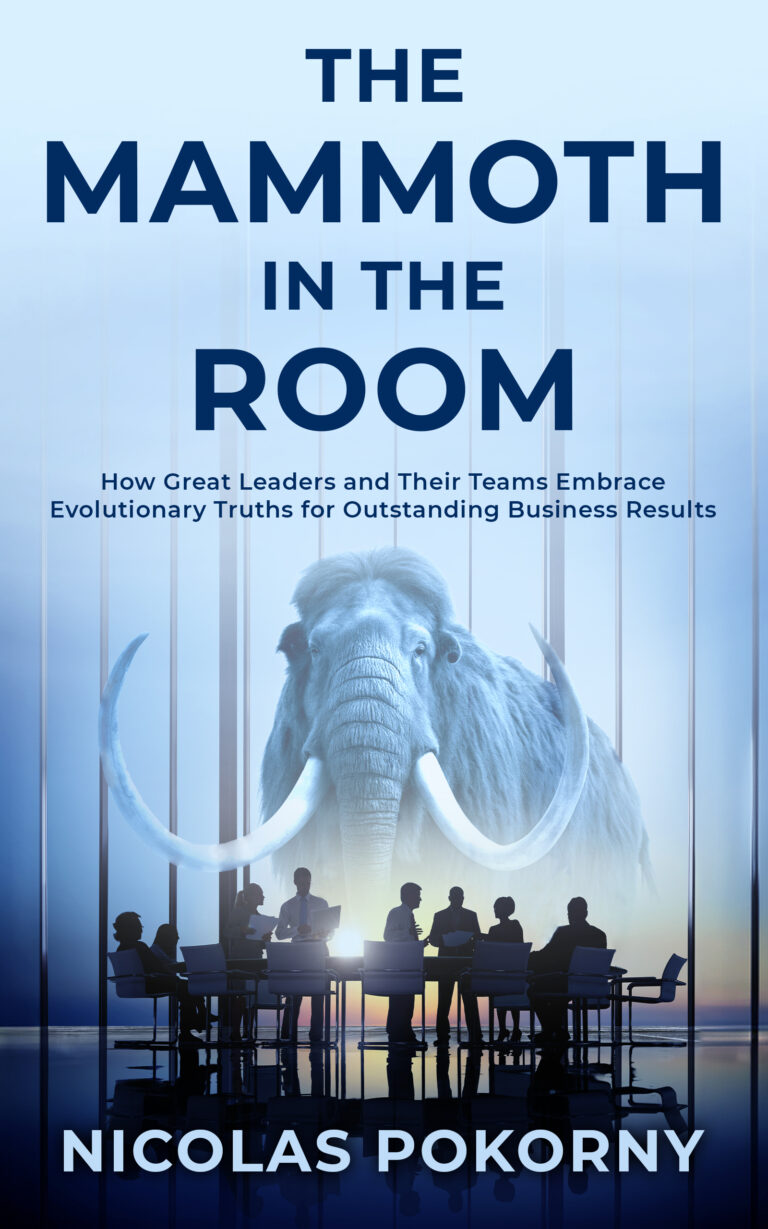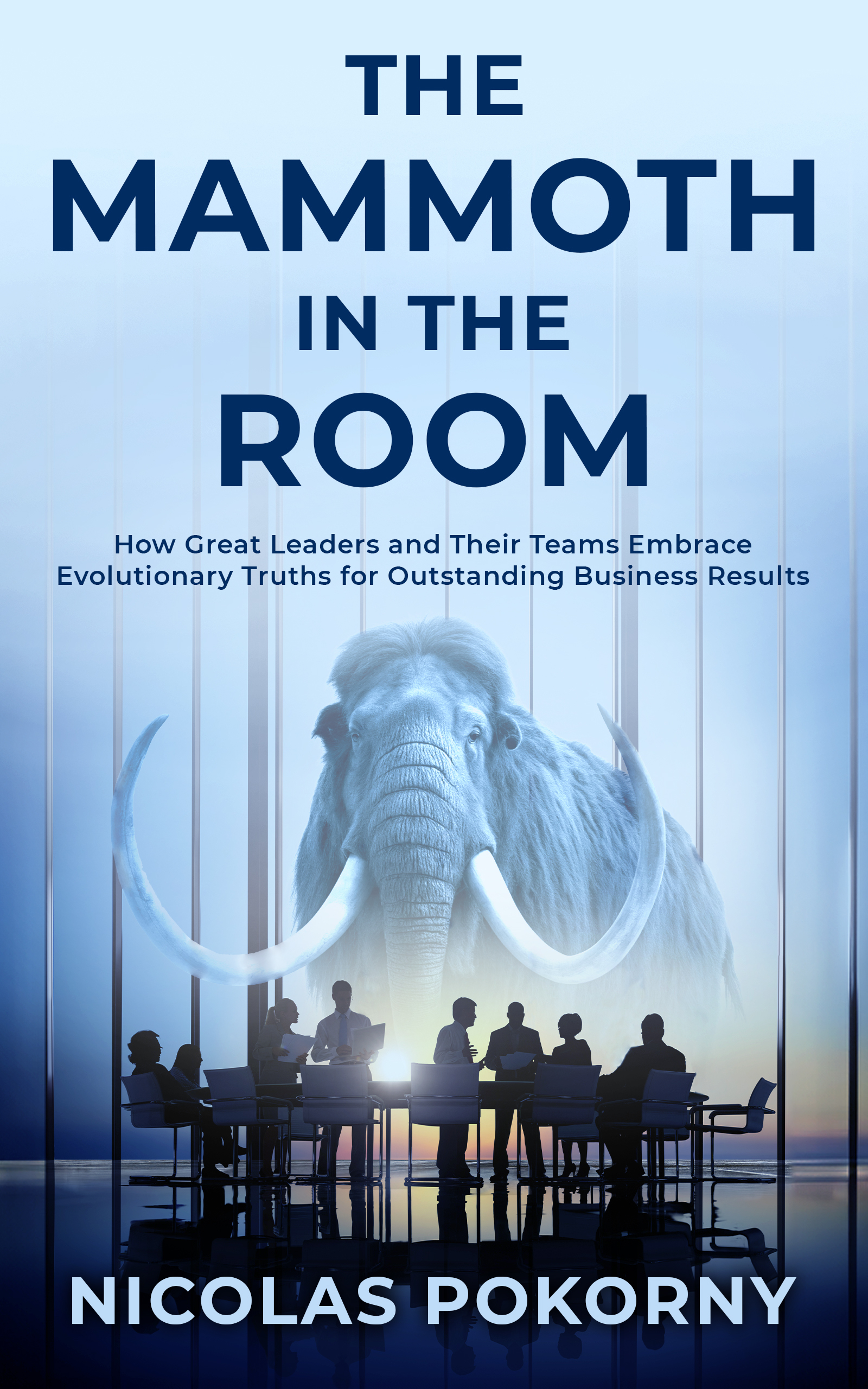Nicolas Pokorny’s THE MAMMOTH IN THE ROOM builds on a surprisingly straightforward truth often neglected in corporate literature: businesses are not abstractions or machines, but groups of human beings. Therefore, successful management in business requires successfully managing human beings. The titular “mammoth” is evolutionary psychology: THE MAMMOTH IN THE ROOM proposes that understanding how the pressures of prehistoric life selected for certain emotional and cognitive processes can further help a manager understand how and why employees act within a corporate structure.
The premise may seem lofty, but the prose itself is clean and accessible, drawing the reader in with a confident, jocular style. Simple devices like a few rhetorical asides (“You’re probably laughing, but it’s true, right?”) or even outright flattery (“You’re smart, and I know you get my point”) prevent the book from feeling like a university lecture—coming off instead like an after-hours conversation between a mentor and mentee. This is important, because one of the key lessons in the text is that employees are human beings, and need to be treated as such. It minces no words about the failings of companies to respect their employees at the most basic level of human behavior: “self-interest—not benevolence—is what drives people to excel both as individuals and in groups,” so long-term success is only possible if management balances its own interests with those of labor; otherwise, the company will hemorrhage talent, or at least stifle its own growth. This idea is important at all levels, and MAMMOTH effectively builds its framework up from small-team management (“teams are only effective if the needs of the individuals on the team are respected”) to discussions of company-wide strategy (“Corporate gimmicks don’t address core dysfunctions”).
THE MAMMOTH IN THE ROOM is clear-eyed and confident when it comes to business. It does falter, however, in its underlying assumptions about humanity. The biggest issue is the reliance on evolutionary psychology. The scope of the question is wider than this review, but the field is subject to a number of structural critiques, including whether it can be considered empirical science at all. At times, MAMMOTH is led into some astounding or worthless claims (“In humankind’s earliest days, leadership was straightforward: the strongest person became the leader”); but, thankfully, most of its ideas can be explained just as well (if not better) by social construction, and the nitty-gritty of evolutionary psychology is more window-dressing than core argument.
More troublesome are some instances where the text touches on seemingly straightforward ideas, such as proposing that managers build a strong foundation for corporate performance by keeping themselves physically, mentally, and emotionally fit. Its vision of health is purely built around fit, able-bodied people, and rehearses some of the worst assumptions from diet culture. For a text generally sensitive to the human element in management-labor relations, the brick-headed advice that a manager simply “Stop making excuses and start making healthy choices” is striking. Fortunately, these moments are few and far between, and overall highlight the command MAMMOTH has of its actual core competencies. Skipping these sections entirely doesn’t detract from the central argument.
In a rare coup, THE MAMMOTH IN THE ROOM might actually be as helpful to labor as it is to management, providing a useful framework for both parties to evaluate their functions and relationship. Regardless of its theoretical underpinnings, the book is clearly and strongly argued—a standout in corporate literature.
Nicolas Pokorny’s THE MAMMOTH IN THE ROOM provides a strong, successful model for human-centered, dynamic leadership.
~Dan Accardi for IndieReader


